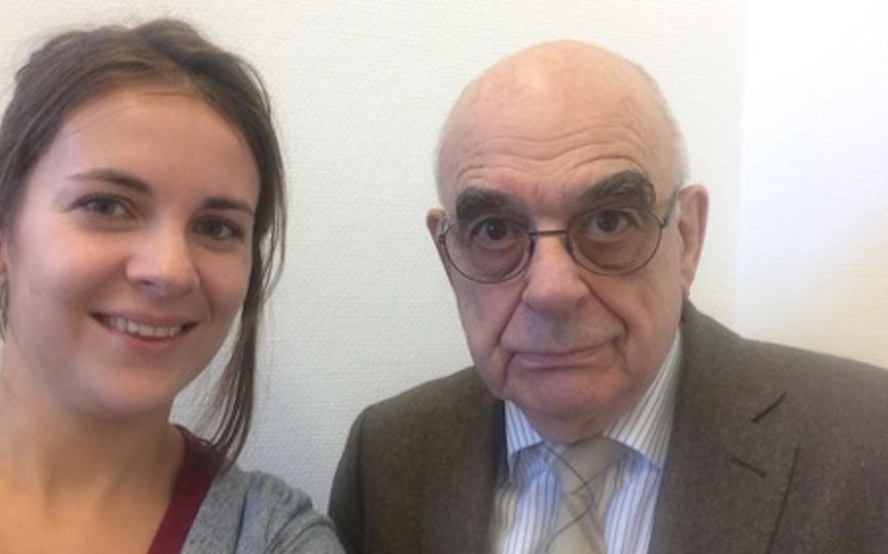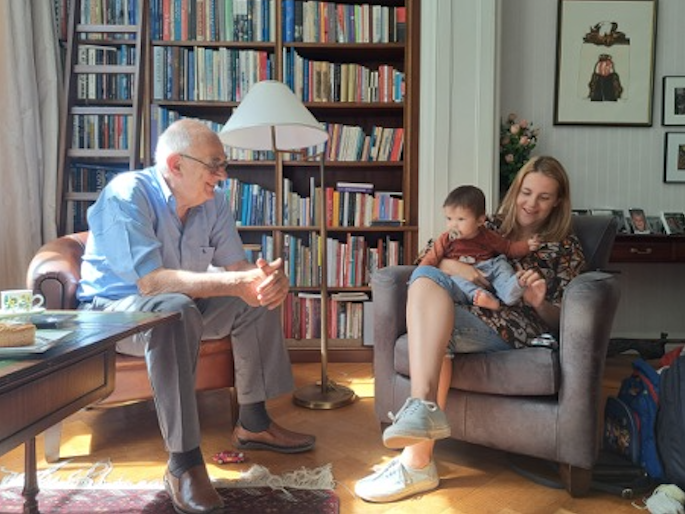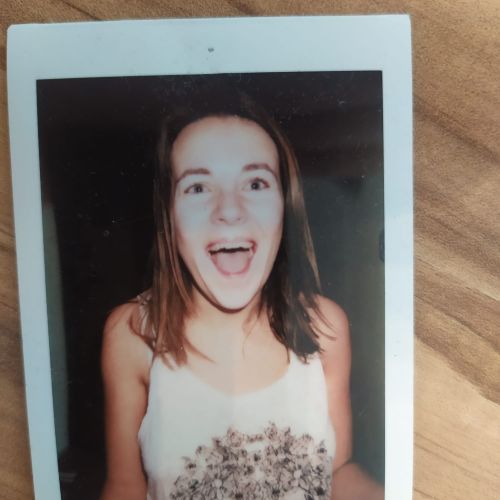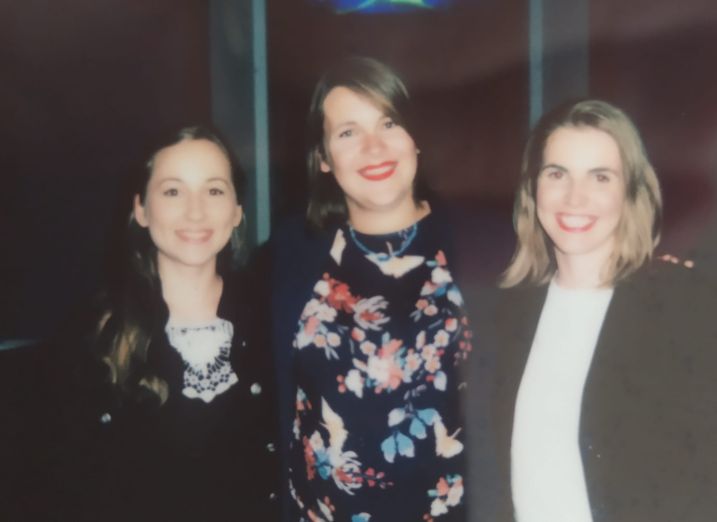Personal Reflections on Research
Doing research is not always an easy task. As researchers, we often face dilemmas. The choices we make influence the results of our studies. While we work, we learn. Because we believe in the importance of transparency and vulnerability, and the opportunity to share lessons learned with others, this blog aims to share our personal reflections on the research purpose.
6 July 2023 - By Marieke Hopman
Recently, there has been quite some debate about academic freedom in the Netherlands. Many worry that academic freedom has been decreasing. This means: as an academic researcher, you cannot freely share your thoughts or write what you want. One of the cases recently debated concerns Dr. Susanne Täuber, who was fired by Groningen University for several reasons, including the fact that she wrote and published an article on gender discrimination based on her experiences at her own faculty. Another example is the worry and experience of students becoming increasingly civically engaged or “woke” and, through their actions, forcing taboos upon the academic community. Actions may include calling for the firing of academics for expressing opinions that run contrary to their own.
My experience with limitations on academic freedom
I have also had some personal experience with criticism, taboos and censorship in academia recently.
Last year, I encountered quite some criticism when teaching in a new Bachelor program. One criticism was that I prescribed to read Hannah Arendt’s chapter on the Rights of Man, without indicating that in other texts she has been racist (honestly, I had no idea). A second criticism was that we started our course and discussion on the history of human rights with discussing the Nuremberg Trials: because this was Eurocentric, and because we didn’t include a trigger warning. A third criticism was that a case study on female genital mutilation/cutting in Somaliland, included in the course materials, was “othering”.
A second experience has to do with a response to a paper I recently published. In the paper, I wrote about a research methodology (covert research) which we employed in Moroccan-Controlled Western Sahara, to study the children’s rights situation in this area (see also this blog). In the response paper, a group of academics from Tilburg University claimed that my use of the method encouraged epistemic injustices committed by the Global North against the Global South. Replying to this, I and some other colleagues argued that this was unfortunately necessary, because in these types of authoritarian situations, there is no other way to do research on children’s rights. And ultimately being excluded from research is also a form of epistemic injustice.
My recent experience in Palestine, where I was teaching at a Palestinian university, showed me another possible issue with academic freedom. In Palestine, condemning the Israeli occupation and severing any ties with Israel is mandatory for all students and academics (and it seemed to be so also, at least to some degree, for Palestinian society at large – including its visitors). In the Netherlands, the activist group “Dutch Scholars for Palestine” have demanded for academics and institutions to implement the same boycott.
Personally, in the Palestinian context, I find demands for this boycott completely understandable. Having seen and heard first-hand how Palestinian children suffer from Israeli occupation, due to not being able to move around and the regular violence by the Israeli military and settlers towards their friends, families and themselves, I understand the strong urge to want to act and do something to stop this. Especially since the Israeli occupation of West Bank and Gaza is clearly illegal under international law.
However, I am not completely sure if, even in such an extreme context, there should be taboos in academia. In this case, the taboo seems to go even further, so that Palestinian scholars are expected to contribute to the struggle for the freedom of Palestine through their academic work. Palestinian scholars invited to speak abroad are expected to speak about Israel/Palestine. Any other work or interest becomes almost irrelevant. While understandable, it is also problematic in the sense that your education, the thoughts that you can express and receive, the topics that you can study, are all limited. I am not sure, and luckily it is not up to me to decide, whether the struggle for Palestinian liberation needs this limitation on academic freedom.
Lessons for academic freedom in the Netherlands
These three recent experiences have made me more convinced that, at least in the Netherlands, we should strive for maximum academic freedom. This means that we should invite the expression of a large range of opinions from all kinds of perspectives, even those that we may personally consider harmful. Yes, we can add a trigger warning so that people are not caught off-guard. But that doesn’t mean that we should censor our opinions. Censorship certainly shouldn’t be institutionalised, but neither should it be enforced through social/peer pressure. As a teacher, I should not be afraid to present a case study on female genital mutilation/cutting in Somaliland because I am not from Somaliland. I should not be afraid to write about a research method used in the Western Sahara, just because I am a researcher from the Global North doing research in the Global South. If we allow this censorship to take over through social pressure (e.g. the anger of a group of students) then we will damage our education and our research. This is what I saw in Palestine: if you are focused on the taboo, and you limit academic freedom in this direction – although completely understandable – you limit possible development of the minds of students. You limit education, for students and for academics. We risk ending up all saying the same thing, reading books that also say the same thing, only developing our thoughts in one direction, and keeping our other thoughts to ourselves. Because we are encouraged to avoid controversy, and we fear being “cancelled”.
For example, when editing this blog, I very seriously considered taking out the reference to my recent experience in Palestine. Because I fear the negative reactions it may cause, since anything related to Israel/Palestine seems to be highly sensitive. On the other hand, the experience in Palestine was an eye-opener for me in many respects, and I thought that sharing it here might benefit others.
A possible solution
Does this mean academics should stop being critical? Absolutely not. Academic criticism by students and employees, even if unnuanced or in some cases not completely informed, should be welcomed and encouraged. Because we can always learn from different opinions. Indeed, we should welcome hearing different opinions because they stimulate our critical thinking and therefore contribute to education in a broad sense. And, of course, teachers can learn a great deal from students, and use their input to improve their teaching (e.g. trigger warnings were a new idea to me, and it took some time to adjust – but now I’m happy to add these).
However, I believe (as I wrote in my “personal note” in our reply paper) that it is important that we remain respectful towards the people who hold different opinions from our own. We should encourage them and welcome them to share their opinion, no matter how strongly we may disagree. In fact, their opinion will contribute to our education, so we should thank them. As John Stuart Mill wrote, in his work On Liberty, since human beings are fallible:
“The only way in which a human being can make some approach to knowing the whole of a subject, is by hearing what can be said about it by persons of every variety of opinion, and studying all modes in which it can be looked at by every character of mind.”
If we do not create space for a diversity of views, if we react to views different from our own with anger and we attack the person expressing the opinion, the diversity of views will disappear from our classrooms and our writings. Academia will become increasingly monolithic in its views, writings, and topics. In the end, this is not only unpleasant, but it will lead us further away from any truth seeking. In the words of Mill:
“However unwillingly a person who has a strong opinion may admit the possibility that his opinion may be false, he ought to be moved by the consideration that however true it may be, if it is not fully, frequently, and fearlessly discussed, it will be held as a dead dogma, not a living truth”.
As authors, teachers, speakers, this means that we have to find the courage to express views, and present research findings, that are potentially controversial. This, again, we should do with kindness and understanding. But if we can, we should not censor ourselves, and we should actively protect others (both students and colleagues) who express unpopular opinions.
Conclusion
In sum, I would argue that we should allow and stimulate the maximum possible academic freedom. We should allow someone like Täuber to write critically about her experiences in her own faculty, and welcome her input. We should welcome students to criticise our courses. We should welcome colleagues to criticise our writings. However, kindness is key. Criticism should be expressed in a kind and interested manner. If we criticise in anger and we demand for an opinion, view, text, idea to be censored – especially if we engage others to do the same, for example on social media – we limit academic freedom. We create taboos and limit our education and possibility for discussion. Even when this is not regulated formally. Because people (including those in power at institutions) will self-censor if under social pressure to do so. And this would be a great loss for all in academia and beyond.
20 April 2023 - By Marieke Hopman & Jan Pronk
As a researcher work can sometimes be lonely. You become so specialised on a certain topic that there may not be that many others who completely understand the content of your work, at least not in your immediate environment. Some researchers work alone, others work in teams. For those working in teams their teammates may be in a position of leadership over them or sometimes even their competition (for example if there is one grant available which all are developing proposals for). You may have very intense experiences when doing field work that are not easily shared with colleagues who have not done similar work. For all these reasons, I find that finding good mentors and maintaining a regular relationship with them is crucial.
Throughout my career so far, I have been lucky to encounter numerous mentors who have offered great support and wisdom. Among them are Monica Meijsing, Rianne Letschert, René de Groot, and Hildegard Schneider. These are the people who have coached me through academic confusion, moral dilemmas, stresses, successes, and failures. Today, I want to highlight one person in particular, my oldest mentor (in terms of the duration of mentorship - but probably also in age!). Namely: Jan Pronk. I want to tell you how I met this mentor, how our relationship developed, how we organise the mentorship, and share some tips for successful mentorship. I hope that this will be an inspiration to others, an encouragement to invest time into finding good mentors and to be a mentor to others.
My mentor: Jan Pronk
Within the Netherlands, as well as among those specialised in international politics and development, Jan Pronk (1940) is quite famous. In the Netherlands, he is known as a prominent politician, former minister of development co-operation (twice) and a key voice in political debate. He is also known for being a strongminded and opinionated idealist, who has a strong political interest in protecting human rights and advocating for justice for the most vulnerable in society. At the international level, he is known for his political work, including at the United Nations (e.g. as head of the United Nations Peace Mission in Sudan from 2004-2006), and his scientific work as a professor of Theory and Practice of International Development.
How did we meet?
In 2013, as a MA student in philosophy, I wanted to do research on child soldiers in Rwanda. Someone who knew about my project said that I should try to get in touch with Pronk, because of his active involvement in Rwandan politics. I emailed Pronk (after googling his email address) and was surprised to receive a reply. He said that we could meet and invited me to a public lecture he was doing for Amnesty International.

Marieke & Jan Pronk in 2018, picture for a social media post
I attended the lecture with a friend. Afterwards, there was quite a line of people wanting to speak to Pronk. Being a bit shy, I was waiting around for the line to clear away. When I finally found the courage to approach him, he was already on his way out. It turned out he was in a rush to catch a train, but he invited me and my friend to walk with him to the station. So, while speed walking through the streets of Amsterdam, I was subjected to a kind of job interview. What did I know about Rwanda? Why did I want to do research there? What did I want his help for? What were my ambitions? Somehow, although I didn’t know much about Rwanda, or what I was doing, I passed the test. Since then, and for the many years since, Jan Pronk has been one of my most valuable mentors.
What does this mentorship look like?
Obviously, a mentor-student relationship is different from case to case. You and your mentor have to work out what works best for you. In our case, we meet once or twice per year. The reason to meet is usually a concrete question from my side. This can be academic (e.g. feedback on a draft article), experience related (I need to talk about my recent experience with the Sahrawi refugees), or personal (I’m not sure what to do next, career-wise). Usually, I collect a few questions or issues that I am struggling with and bring them all to the discussion. I also usually send some questions before our meeting so that he has time to think them over and, if relevant, I may send some material.
In between meetings we are in touch over email. If I have a short yet urgent question, I sometimes send an email or call. Sometimes Pronk emails me to share information, for example about a publication I should read or an event that I should attend. When I get stuck while in the field (and I usually get stuck once or twice during field research), Pronk is one of the first people I call for advice and pep talk. He has also been very helpful in publicly supporting my work, for example through writing me recommendation letters.
When we meet, there’s always good advice, accompanied by great anecdotes. For example, during our last visit we discussed my new blog category “personal reflections on research” and this blog on mentorship. Pronk warned me to be careful about what you write and how it may be taken out of context and used against you. As it turns out, he was once expelled from Sudan by the Sudanese government, where he was present as UN special envoy, based on some remarks made in his blog.
(For those who are interested, I highly recommend reading his blogs from Sudan, starting with the last one, here.
Tips for a successful mentorship relation
Based on my experience being mentored by several amazing people, I can share the following tips for anyone looking for a mentor:
- Don’t be afraid to reach out. When you meet, or even read about someone whom you feel you could learn a lot from, don’t be afraid to get in touch with them and ask for a meeting – provided you have a concrete question or proposal. At worst, they are flattered but have no time (if they don’t reply, you can assume this is the case). Don’t take it personally. At best, you start a great mentorship relation.
- Value their time. They are helping you and your project, and you don’t really have much to offer in exchange. The least you can do is value their time highly – treat their hours like they’re gold. Don’t send them 1000-page documents to read without any direction. When you send documents, indicate which section you particularly would like to discuss or questions you may have. Be on time for appointments (I once forgot about a meeting with Pronk – he was not happy!). Prepare your meetings. Think about what you want to discuss, and how they may help you.
- Meet in person. Where possible, meet in person. Travel to see them. It shows you value the mentorship and their input. In-person conversations, in my experience, lead to more interesting working relationships than online conversations. Learning from your mentor is not something you do in between other business. It’s something you take time for.
- Share personal information. Don’t be afraid to share personal information, even about your private life, especially insofar as it is relevant to your research work. Your mentor usually has a lot more experience. I have personally benefitted greatly from valuable advice about, for example, how to balance my ambitions with being a parent. Aside from advice, it can be very comforting to hear how someone whom you admire may have struggled with similar issues in the past and learn how they dealt with it.
- Formalisation: Generally, I don’t think it is necessary to formalise a mentoring relationship. For me it has always evolved naturally. There has to be a certain connection between two people, and both should enjoy discussing certain topics together. The only exception in my experience has been when I needed official PhD supervisors, and when applying for another grant, we needed to include a kind of advisory committee.

July 2022: Visiting Jan and Tineke Pronk at their home. Marieke visited with her two children and husband.
A commentary by Jan Pronk
I feel very honored to be mentioned as an example, in this reflection on mentorship. I do not think that I deserve the praise, but I certainly appreciate these words.
Marieke is not the only one who regularly visits me over a longer period. Others are Anoek Nuijens, a theater maker, and philosopher Ellen Mangnus, who is currently writing a book about my views on development, politics and international relations. Others visit every now and again, such as former employees and students. Everyone is younger than me, many are much younger. I learn a lot from these visitors, particularly from those who visit more regularly. It helps me to stay up to date regarding new views and new developments. It sharpens my own thoughts, so that I do not find myself stuck in past views. Not that I worry that this would happen either way, because I always continue my studies – but these conversations are valuable contributions.
From you, Marieke, I have learned a lot: a different (participatory) view on children’s rights, your fresh perspective regarding things that went wrong in Rwanda, your views regarding the so-called homeschooling in the Netherlands, your impressions in the Central African Republic, Cyprus and the Western Sahara, and your approach to finding funding. I admire your perseverance.
What I mean to say, in short: mentorship is a two-way street.
17 January 2023 - By Marieke Hopman
Lately I have been thinking about the final phase of the Invisible Children research project, which we plan to finish by February 2024. Not only am I thinking about the project – looking back and looking ahead – I am also thinking about what my next step will be, for me personally as well as for the Children’s Rights Research platform.
Looking back
Recently, I found myself reading some old blogs. I noticed that I used to be very personal when I wrote, really taking readers along on the journey, both its ups and downs. See, for example, the blog series on my PhD research ‘Looking at law through children’s eyes’. A lot has happened since my PhD research. As you may know, I obtained funding to start the Invisible Children research project during my PhD studies. I started managing this almost €800,000 project before I even defended my thesis in April 2019. A few things ‘interrupted’ this research project: a global pandemic, and the arrival of my two children (now one and three years old). Looking back, although I managed to keep the project afloat, and my kids alive, I feel that I lost something in the process. I do not start my blogs with “dear all” anymore. I no longer share the research process as much – not its struggles, nor its successes. I am not as transparent as I used to be. For example, I haven’t published a budget overview for a long time, as I did in 2017. What changed?
May 2019, at my PhD defence, seven months pregnant. With student employees Ambra and Florentina
A different situation
Today, my personal circumstances are quite different from back in 2017. I used to be a PhD student with no idea whether I would be able to obtain funding for the entire PhD period, let alone what I would do afterwards. Currently, I have a position as an assistant professor, and a permanent contract (thank you for negotiating, collective labour organisation!). More importantly, instead of working solo, I now manage a team of around 35 employees and 10 volunteer students.
My work environment has also changed. As a researcher, I am under much more scrutiny today than I used to be. This scrutiny comes mostly from within my institution (the university), but also from the outside. Partially, it is the consequence of what seems to be a global trend for universities to become more careful to avoid legal responsibility (otherwise known as CYA [Cover Your Arse] policy). For example, in 2016 I was able to travel to war-torn Central African Republic without any discussion at the university. However, these days, if I want to travel to a risk area, I have to get several special permissions from different levels of leadership. I suspect that this policy change is the consequence of the increased scrutiny academic institutions are under. Students are increasingly critical of everything happening at the university than before (e.g., the ‘cancel culture’), ethics committees have become stricter and new European Union regulations strictly prescribe the handling of research data.
All this has a major impact on my work. I spend a large portion of my time not actually doing research, but on administrative processes (payments, contracts, meetings, data protection, etc.). What’s more, when I think about sharing something vulnerable, for example sharing an overview of our financial situation, my first thought is: “would this be allowed?”. And, even if it is, whether sharing it might have a negative impact on my faculty’s leadership, our funder (NWO – Dutch Research Council), and my colleagues of the Invisible Children project.

When I learned that we had received the funding for the Invisible Children Research Project
To transparency, vulnerability, and beyond!
However, reading back old blogs reminded me of my old self. Of when transparency and vulnerability were core values when doing research. I still believe in these values. Perhaps being transparent and vulnerable is even more important today, now that I am in a (slightly) more senior position, and now that I serve as an example to more junior academic colleagues (including students). In times where CYA policies are rampant, perhaps transparency and vulnerability are exactly what academia needs. Therefore, I hereby pledge to start sharing regular research updates in a more personal, transparent, and vulnerable manner again. Stay tuned!


